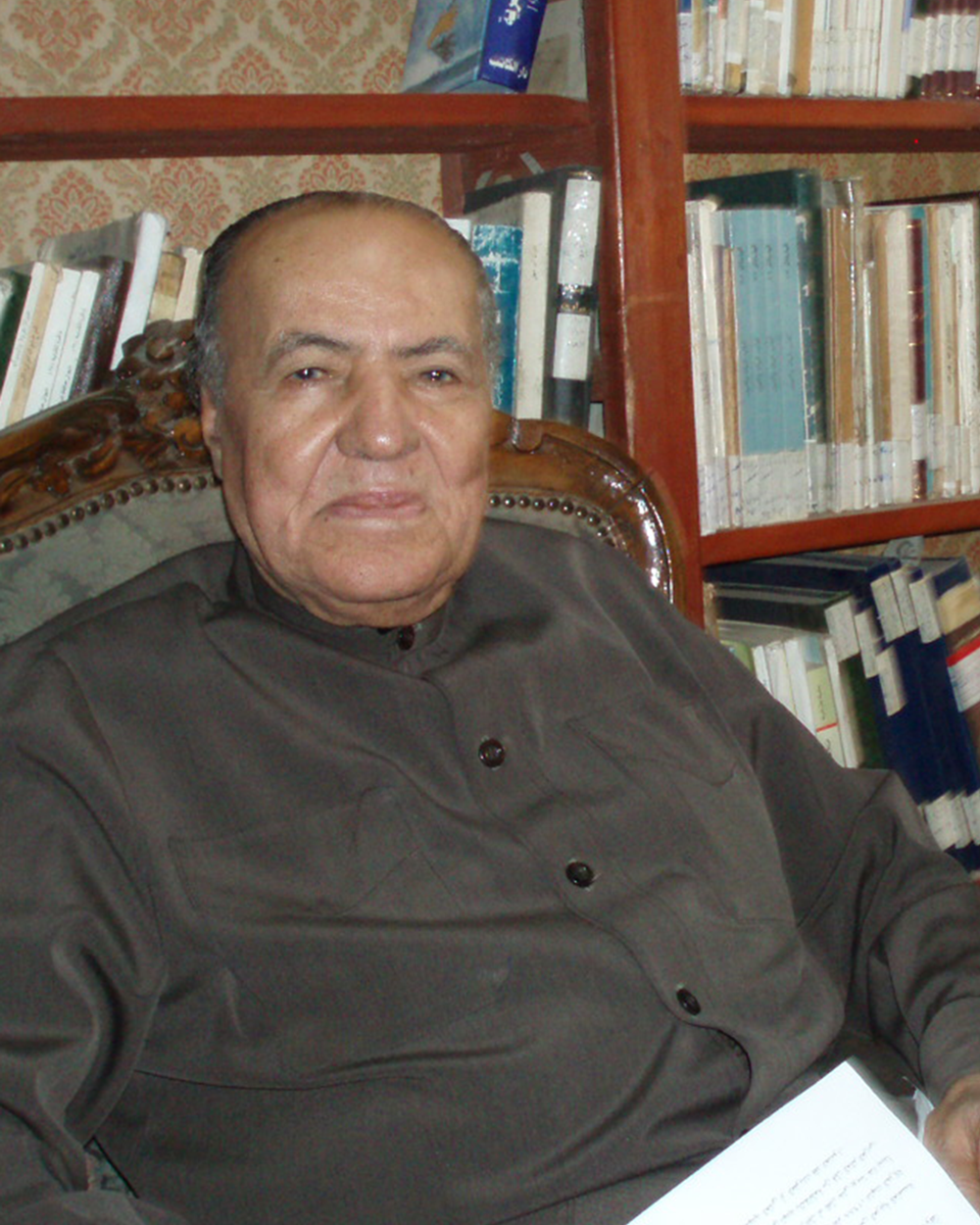About Us
About the call for Islamic revival
The Islamic Revival call is not an institution, organization, or association with its own administrative entity, regulations, and bylaws as is the case with organizations, parties, and associations. It’s simply a call, or a movement, or an ideological stream that has reached a degree of crystallization and theorization that gives it a distinctive essence, distancing it from superficiality, fabrication, selectivity, or imitation.
It marks the end, not the beginning, of a thought, and it’s the ultimate destination, not the beginning of the journey. It’s the culmination of a multidimensional encyclopedic culture rather than the result of technical specialization or academic study in a specific branch of Islamic knowledge, or even all of them. Its seed goes back fifty years when its caller, Professor Gamal al-Banna, devoted a chapter in his book “New Democracy” (1946) entitled “A New Understanding of Religion Ensuring its Central Idea – Don’t Believe in Faith, Believe in Humanity,” which later took its final form: “Islam intended human, but the jurists intended Islam.” The main idea in this call is to restore Islam to what it was when it descended fourteen centuries ago as a revolution to liberate people, bringing them out of darkness into light, aiming to change a society that worshipped what the ancestors worshipped and to promote noble values and honor human beings.
This idea has been the focus of Professor Gamal al-Banna’s treatment for fifty years, reflected in his numerous writings. Nevertheless, he did not allow himself to declare the call of the Islamic revival until after the third part of “Towards a New Jurisprudence” was published, when he was in his eighties and found it his duty to crystallize the thought published in thirty books, harmonize between them, and organize them into one call to be delivered to a new generation so it wouldn’t die with its owner.
Since the Islamic Revival call is an ideological current and a theory in understanding Islam, it becomes the property of anyone who believes in it. Ideas are not subject to monopolization, and as soon as they are disseminated by their originator, they become the property of everyone. Although we have strived to perfection to the best of our ability, this does not prevent others from adding enrichment to this call or uncovering its flaws.
The Islamic Revival call warns against turning into an institution that, like all institutions, has its own interests, even at the expense of its own idea. It hopes to remain a free call, or at worst, an open institution.


Why the Islamic Revival call?
Some may wonder why this call emerged, especially given the abundance of Islamic calls. The simple answer is that these Islamic calls have lost their way. As mentioned in “The Strategy of Islamic Call in the 21st Century”, Islamic calls have positioned themselves to defend Islam and demonstrate its virtues. However, primarily defending Islam is the task of academics and writers. Islam, after all, is preserved by Allah, and mere defense of Islam means little. Islamic calls should have focused on what Islam aimed to achieve.
The restriction of Islamic calls to theoretical defense of Islam and their neglect of Islam’s actual goals created a void that needed to be filled. Some Islamic calls, by presenting Islam in a Salafi context or by becoming a tool for propagating the ideas of certain scholars or schools of thought, failed to provide an added value to Islamic thought. Instead, they engaged in reprinting heritage books and selling them at low prices or distributing them in parts among university students, etc.
This approach not only fails to serve Islam but also presents a sterile image of it, hindering rather than promoting understanding of Islam. This misunderstanding has led to the emergence of calls based on fanaticism, violence, or focusing solely on rituals, preaching, and guidance. Some even adhere to the divine sovereignty, which misled some scholars, as did the Kharijites before them, leading to an inflation of posthumous religiousness among most segments of society, especially university students and professionals.
This religiousness is primarily manifested in rituals, especially prayer. Every aspect of prayer, from ablution and purification to the final salutation, is meticulously scrutinized and referred to scholars, let alone fasting, pilgrimage, grave punishment, paradise, and hell.
This religious-psychological state is reflected in the behavior and actions of its most righteous adherents. This overdose of posthumous religiousness is met with neglect of worldly religiousness — i.e., morals and values advocated by Islam for a righteous life, whether it involves honesty, spending, freedom, tolerance, justice, intellect, or effort. Because posthumous religiousness has left little room for worldly religiousness, it has become the hallmark of most Islamic calls that emerged in the 80s, even though they originated in the 70s.
Indeed, some Islamic calls, such as the Muslim Brotherhood, for example, attempted to reconcile between worldly and religious aspects and make Islam a way of life. However, the vast majority of their founder’s time was spent organizing rather than theorizing. As a result, they managed to maintain their entity despite the shocks they faced from the time of Farouk until now. However, their theoretical output was limited and did not match the material they extracted and the audience they attracted.
Their failure to surpass the Salafi framework, and the return to the Quran, considering it a shout of salvation and a call for guidance and a will for change, and a message in short to revitalize the Quran, not just its interpretation, is the task that Allah has preserved for this call alone. This call is capable of spreading values, applying reason, theorizing, and preaching. It is rooted in thought and completely liberated from the constraints, interests, or pressures that could restrict it. Another indication of its distinction is its robust response to societal challenges. Every challenge is addressed in a book, and it approaches the public with thirty books covering economic, political, and social aspects of life. Which other call can start its life with such a massive capital? From here, it becomes clear that there is a strong justification for the emergence of the Islamic Revival call, as it is the one that can respond to the perplexing question — how salvation?
Is it necessary for the Revival Call to be Islamic?
Some people, who are not particularly inclined towards Islamic thought or are influenced by other cultures, argue that for a mass, popular movement to be effective, it must be Islamic. Conversely, they assert that movements inspired by abstract ideas or European experiences, regardless of their relevance to Arab society, are merely salon discussions.
This perspective highlights the historical significance of religion in the Arab region, citing examples from ancient Egyptian civilization, early Christianity in Egypt, and the reception of Islam by Copts. It also emphasizes the pivotal role Islam played in shaping cities like Damascus and Baghdad, and how Egypt maintained Islamic influence even after Baghdad fell. Additionally, it suggests that without Islamic caliphates, cities like Damascus might not have risen to prominence.
Furthermore, it underscores the deep-rooted influence of Islam on Arab society, evidenced by societal practices like fasting and charity (zakat). It acknowledges the failures of attempts to replace Islamic values with ideologies like Marxism or Pharaonism.
Ultimately, it argues that while some elites may deviate from Islamic principles, the majority of Arabs, whether in cities or rural areas, remain devout, albeit with some misconceptions about religion’s relationship with concepts like freedom and justice. It contrasts this with Europe, where religion never held the same sway, and where secular principles emerged independently of religious influence.
The Roman civilization was profoundly influenced by them, and this influence persisted until modern times. What applies to Europe does not necessarily apply to the East. Nations, like individuals, have their destined fate that cannot be changed or escaped. Therefore, we cannot ignore our history and seek another history. This is neither possible nor desirable.
On the other hand, the insistence that a call to Islam must be inherently Islamic often stems from misconceptions propagated by religious figures who focus solely on rituals and outward appearances of religion, rather than its core values. While they may be excused for this, the truth is that religions represent the greatest and noblest ideas intended by God to guide humanity. They embody principles of goodness, love, equality, justice, and freedom, inspiring artists, writers, and rulers alike.
Even regarding means, those who narrow Islam to mere symbols of conservatism overlook its original nature and its revolutionary role. Islam achieved the greatest revolution in history with minimal violence, thanks to its profound meanings, values, and psychological impact. If Islam had not been confronted, it wouldn’t have resorted to fighting, as its revolution lies in the meanings, values, and psychological impact found in the Quran.
It is not acceptable for minorities to reject living alongside Islam, especially if Islam recognizes their prophets, respects them, and remains the most prominent aspect of Arab society. Any call that ignores this reality severs the strongest bond with the conscience of the people, becoming alien to them and losing the most significant foundation it could rely on.


